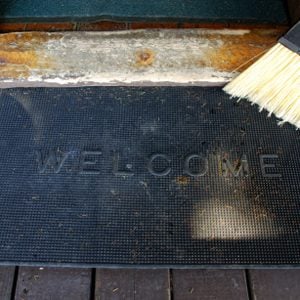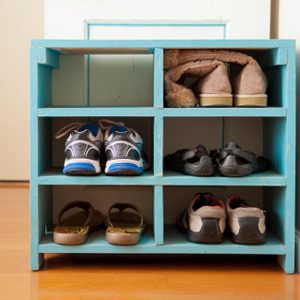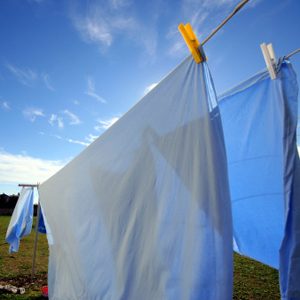
Each spring, the battle begins anew. You vs. allergies. This year, you don’t have to wave the white flag. With a few simple strategies, you can safeguard yourself against spring allergies. Here are the 10 best ways to protect yourself.
(Photo: Thinkstock)

1. Eat One Kiwifruit Every Morning
They’re rich in Vitamin C, which acts as a natural antihistamine. Some studies link low levels of C with allergies. When your allergies are flaring up, consider taking a vitamin C supplement.
(Photo: Thinkstock)

2. Turn On The AC
Air conditioners do just that – condition the air. They remove mold-friendly moisture and filter allergens entering the house. Just make sure to clean or change the filters often or you’ll just make things worse.
(Photo: Thinkstock)

3. Choose Chicken Instead of Beef
A two-year study of 334 adults with hay fever and 1,336 without found those who ate the most trans oleic acid (a form of monounsaturated fat found primarily in meat and dairy products) were nearly three times as likely to have hay fever as those who ate the least.
(Photo: Thinkstock)

4. Choose a Doormat Made of Synthetic Material.
Doormats made of natural material (wicker, etc.) can break down and become excellent feeding grounds for mites, mold, and fungus, and then get tracked into the house. Wash all mats weekly.
(Photo: Thinkstock)

5. Clean Your Porch Lights
As you begin your spring cleaning, be sure to clean all dead insects from your porch lights. As they decompose, they can become an allergen source.
(Photo: Thinkstock)

6. Pop a Fish-Oil Supplement
Taking one every morning after you brush your teeth can help prevent allergic reactions. A study of people with allergic asthma (asthma caused by allergies) found those who took daily fish-oil supplements for a month had lower levels of leukotrienes, chemicals that contribute to the allergic reaction.
(Photo: Thinkstock)

7. Put a Shelf By The Front Door
Encourage family and guests to remove their shoes before entering to reduce the amount of dust, mold, and other allergens tracked in. Keep some soft slippers in a basket by the front door for people who don’t want to walk around in their stocking feet.
(Photo: Thinkstock)

8. Wash Your Bedding
Every week, wash bedding in very hot water. It’s the best way to kill those pesky microscopic dust mites that love your bed even more than you do.
(Photo: Thinkstock)

9. Read The Label
Read labels and avoid foods that contain the additive monosodium benzoate. An Italian study found that monosodium benzoate triggered allergy-like symptoms, including runny, stuffy nose, sneezing, and nasal itching, in adults without allergies. The preservative is often found in juices, pie fillings, pickles, olives, and salad dressings.
(Photo: Thinkstock)

10. Steam-Clean
Steam-clean your furniture and carpets. When cleaning, use a solution of disodium octaborate tetrahydrate (DOT), a boron-based product, in the water. A 2004 study published in the journal Allergy found DOT cut dust mite populations and their associated allergen levels to undetectable levels for up to six months.
(Photo: Thinkstock)